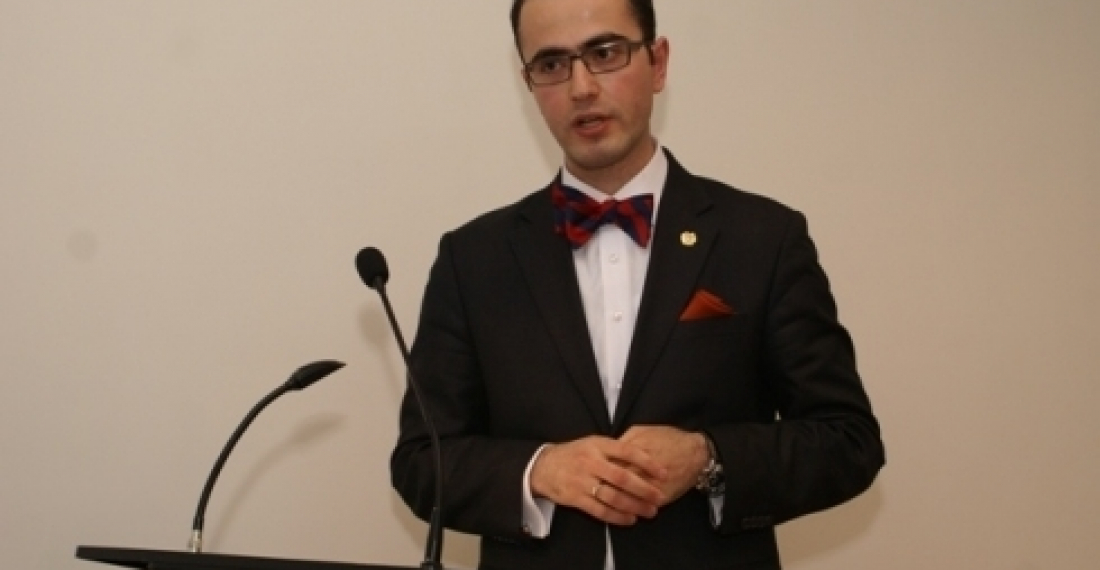There had been much honest anticipation in Yerevan and beyond that once parliamentary elections in Turkey are successfully won by the AK Party, the Armenian-Turkish rapprochement would be back on track. However, the high hopes still remain as such, while new misunderstandings emerge on both sides.
Of course, one may argue that the domestic agenda in Turkey, i.e. the bleeding Kurdish issue and housing Syrian refugees, make a troubled climate in post-election Turkey. Adding to this, emerging blurred authority of Turkey in the wider region after quarrelling with Israel over the flotilla incident, evident breakup with Syria, internationally visible benign neglect of Turkey’s “willingness to help” with Libya and, finally, stalemate with Armenian opening – have effectively damaged the “zero problems with neighbours” policy.. Sometimes I even mistype it as “zero sum” policy recently, to be honest.
While other major issues are of political nature, the standoff with the Armenians has a difficult history, which has come to a new phase after Armenia reestablished the Third Republic 20 years ago. Turkey was indeed very prompt to recognize Armenia’s independence in 1991, but failed to establish diplomatic relations despite behind-the-scene high-level talks. This phase of “opportunity” waved away after Turkey fully sealed the border in April 1993 in an apparent move to support its stepbrother - Azerbaijan. When Armenian President Serzh Sargsyan publicised the rapprochement process and shook hands with Turkish President Abdullah Gul, it was sincerely backed by many world leaders, who commended their vision, even stood behind the table when signing the historical Zurich protocols in October 2009. Though being supported by President Gul, the whole process was perceived totally differently by Prime Minister Erdogan, who went on the record in Chatham House early April 2009 almost rejecting any deal with Armenia and making preconditions which he knew were undoable. Some critics even argued then that Mr Erdogan was not on the same page with President Gul and didn’t share the positive vision about the “Armenian opening”, favoring Azerbaijan more.
When US State Secretary Hillary Clinton paid a visit to Turkey recently to attend the Libyan Contact Group meeting, her additional agenda included items on Caucasus politics – both Nagorno-Karabakh issue and the future of “publicly frozen” rapprochement process with Armenia, which she invested much capital in. This was a good opportunityto show this peace process hasn’t been swept out from international agenda.
Right after, surprisingly, some prominent Armenian NGO chiefs were received by Foreign Minister Ahmet Davudoglu in Ankara, which gave an impression Turkey may consider getting back on track soon.
However, what has been evolving recently in the public domain brings to an objective conclusion that the standstill in the rapprochement process should be blamed on the lack of empathy on both sides, as well as on some high-level politicians who have been vehemently hostile to this rapprochement since the outset.
The words of President Sargsyan in the Armenian holiday resort of Tsakhkadzor created a real hurricane in Turkey. Given how the Foreign Ministry, AK Party, some other top politicians, andof course, Mr Erdogan in Baku, crashed on Armenia harshly. I doubt if the Turkish authorities ever thought to employ media monitoring groups and translators to report the transcript of the event from Armenia.
In reality, of course if those misguided gentlemen frankly care about the reality, President Sargsyan answered the schoolkid that the future of the homeland depends on coming generations (as for any other nation), and elaborated: “…if your peers would put best effort and energy… we will have one of the best countries in the world. Believe me, in most cases not the size of the territory determines the weight of the country”. President Sargsyan said that each generation had to meet its own duties and challenges and while his mates were forced to save the people of Karabakh, the others would meet their responsibilities with dignity in the future. He argued that a successful state should be “modern, secure and prospering” to enable matching with other developed nations. This was his ultimate call to the new generation in the room, and nothing more or less.
I will be surprised if the newly reelected leaders in Turkey would not sign up such a statement for their own country, if they are true leaders and not only elected politicians. However, this time again they mostly acted like politicians…
Hovhannes Nikoghosyan is a researcher from Yerevan, Armenia. He may be contacted at hnikoghosyan@rau.am







